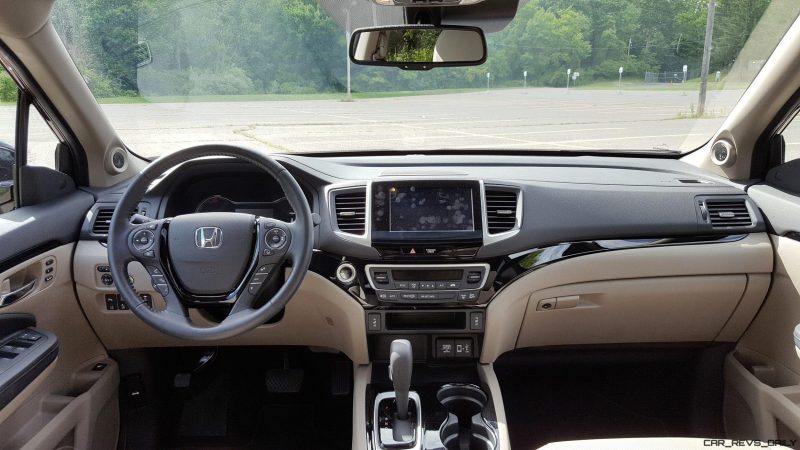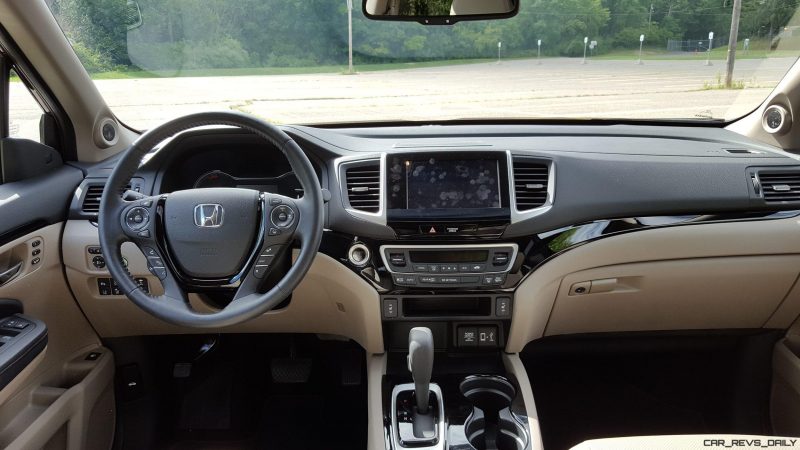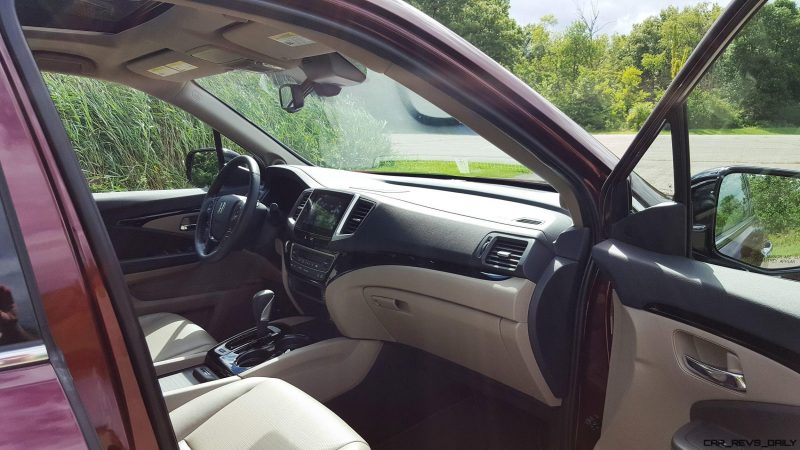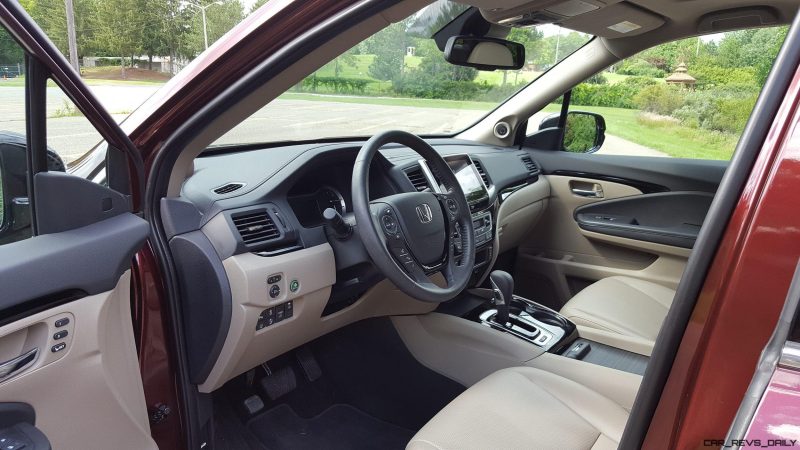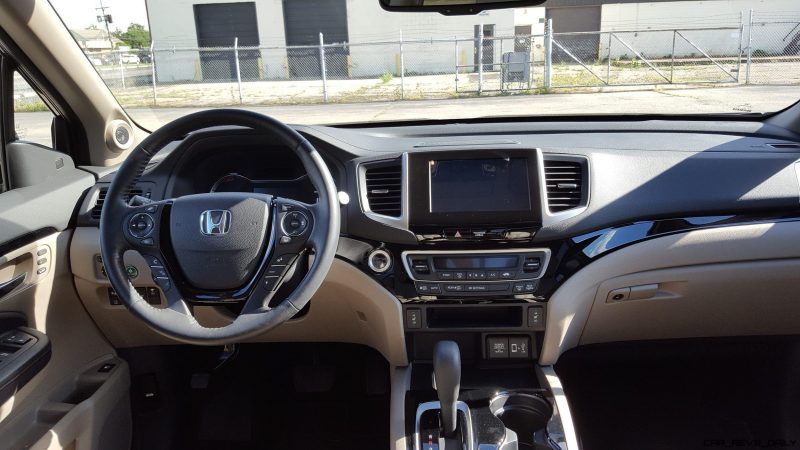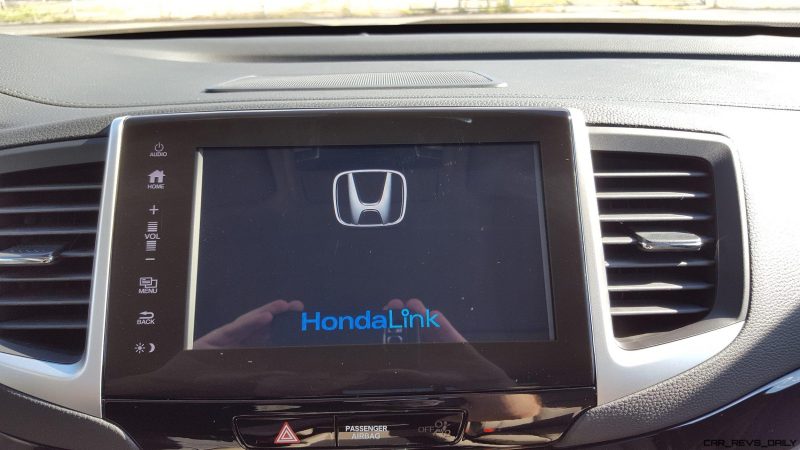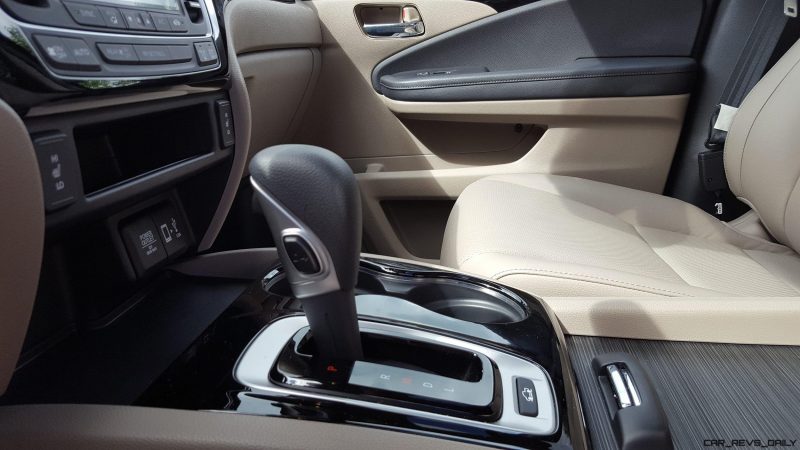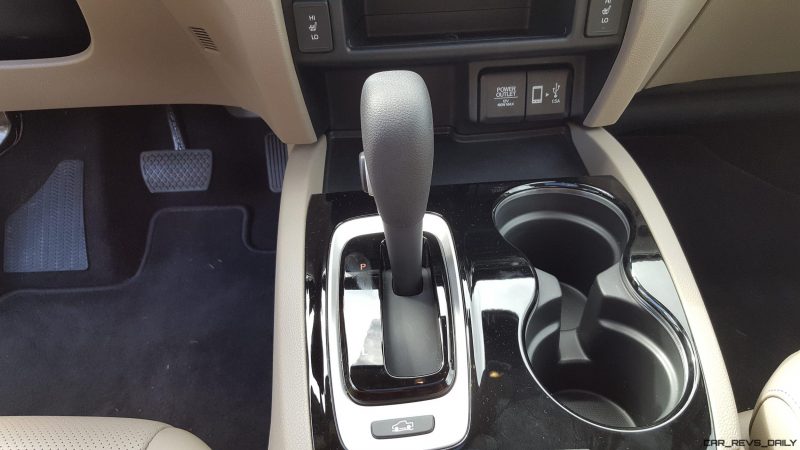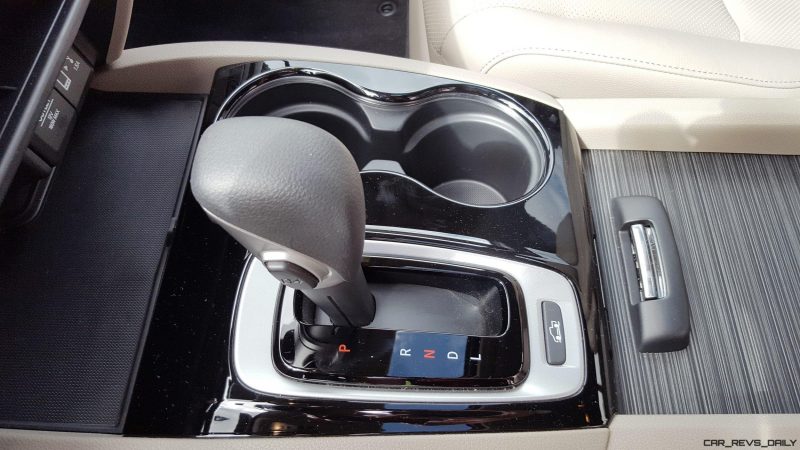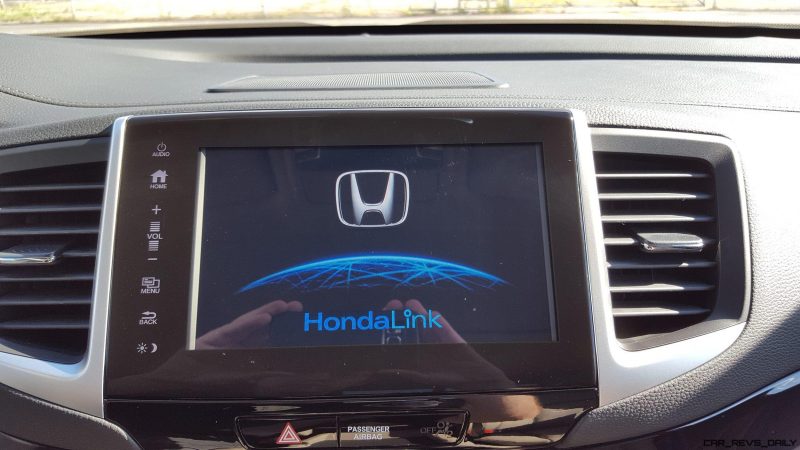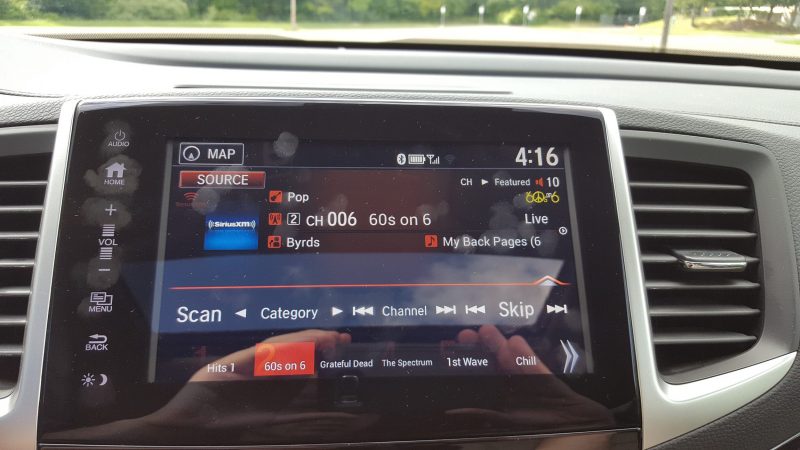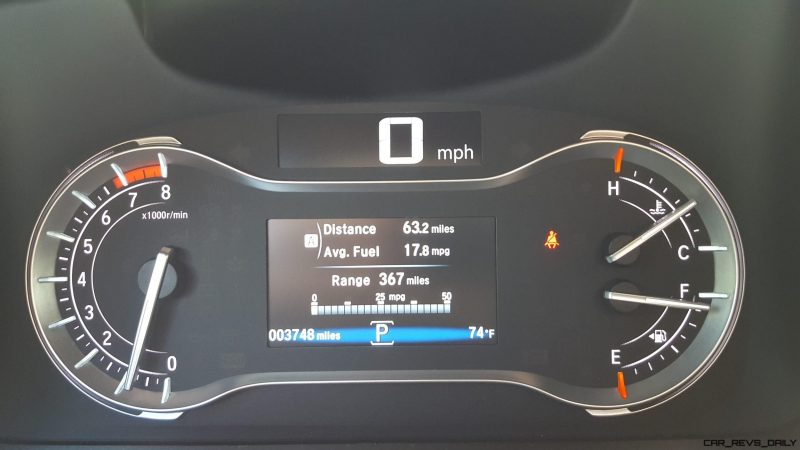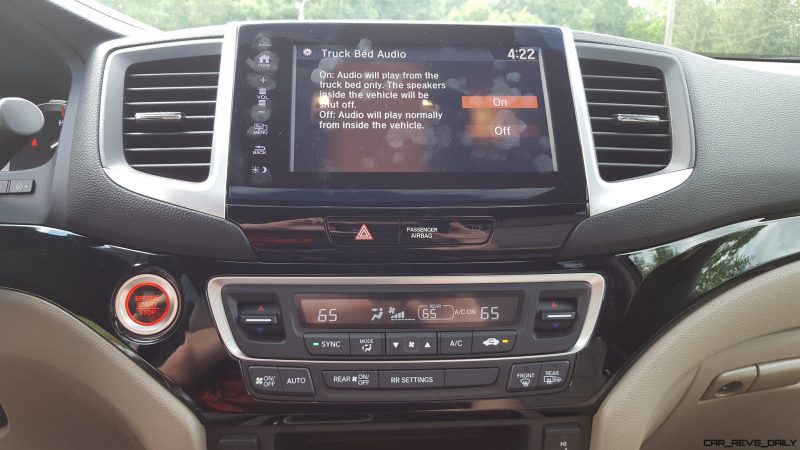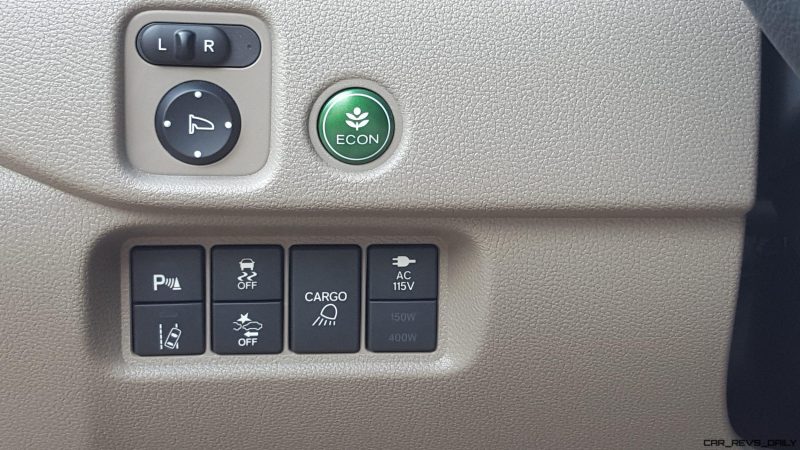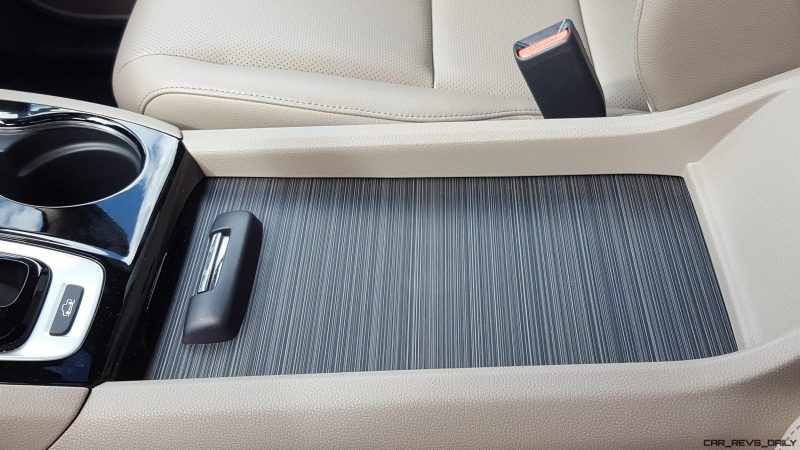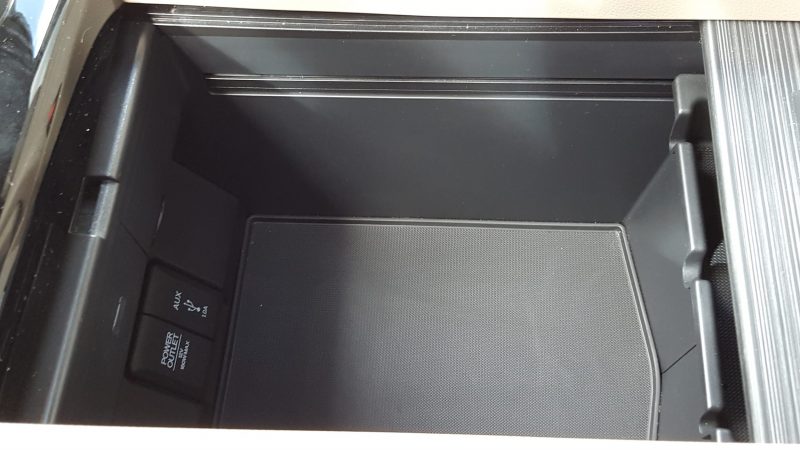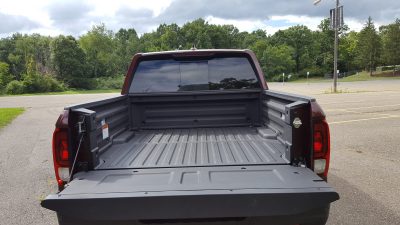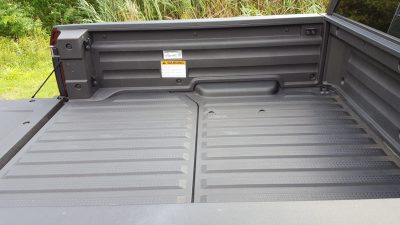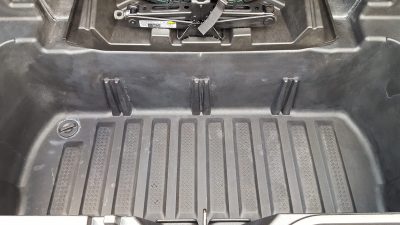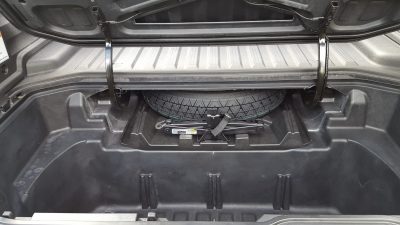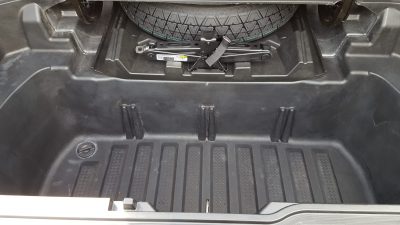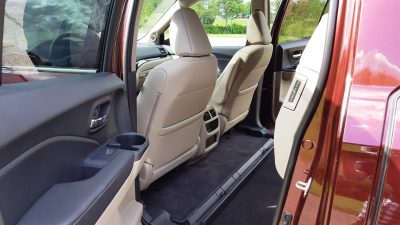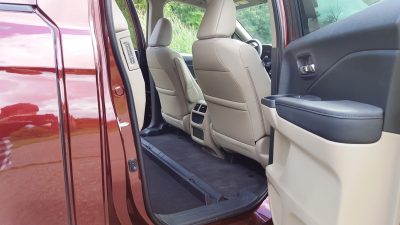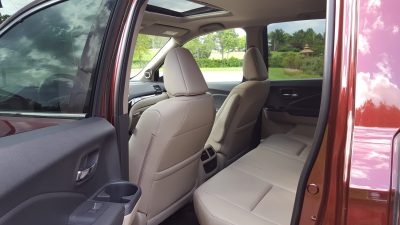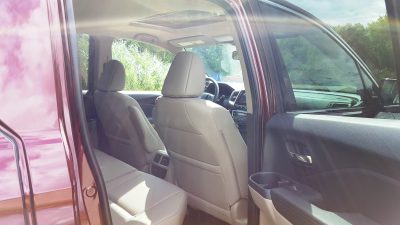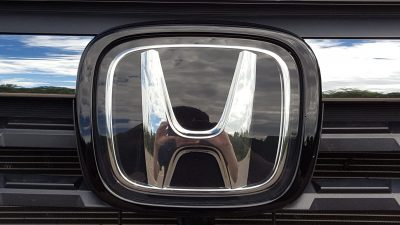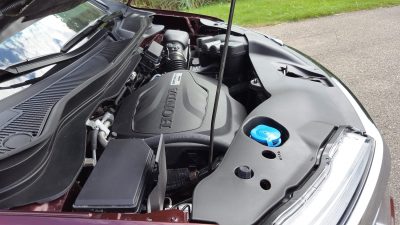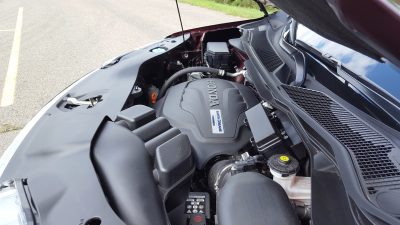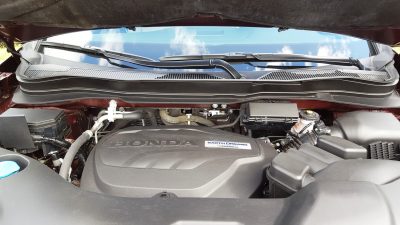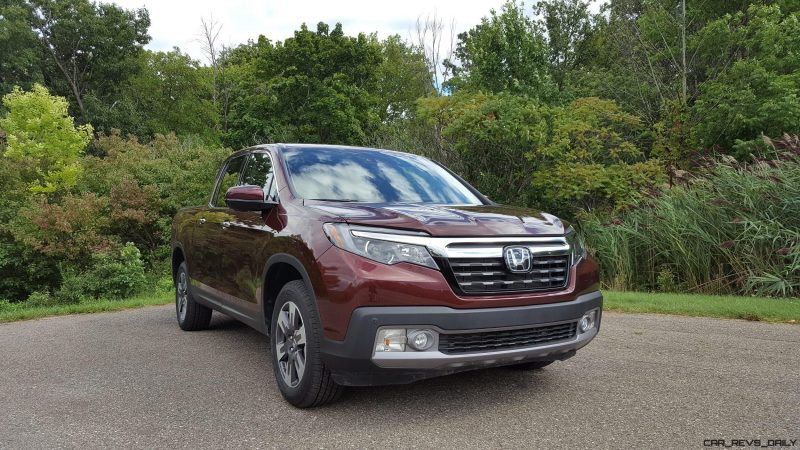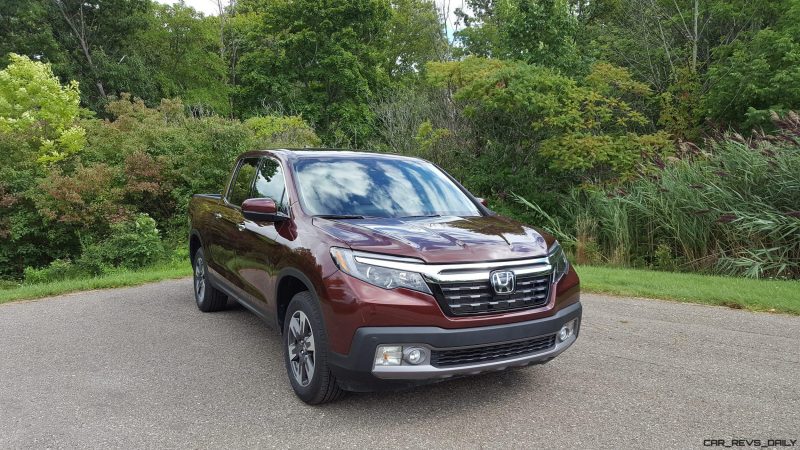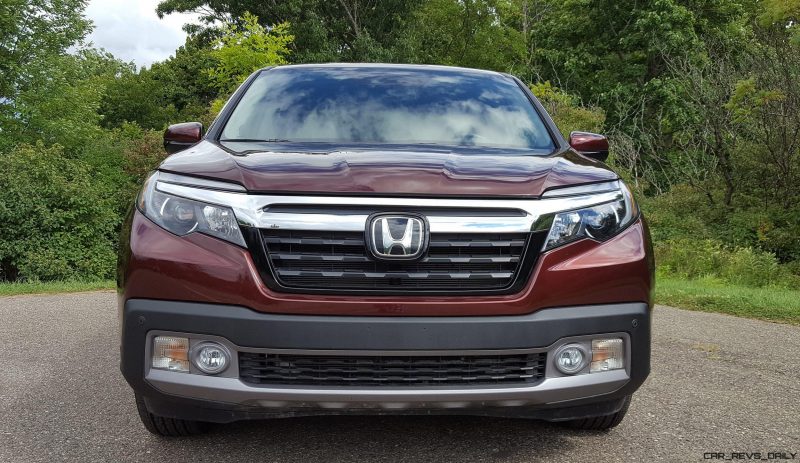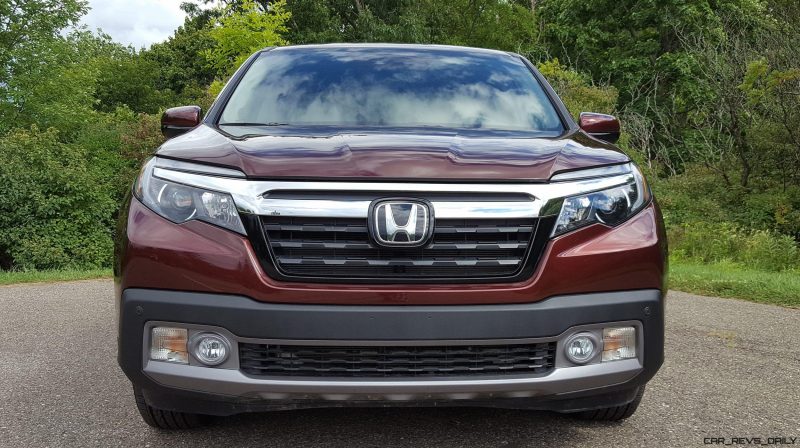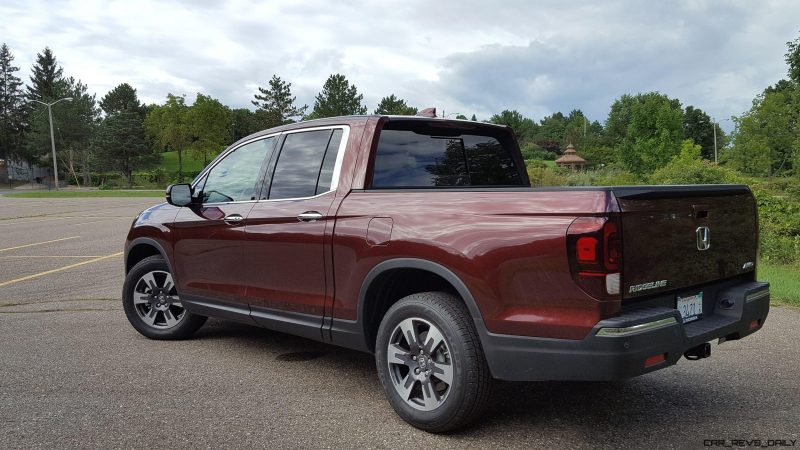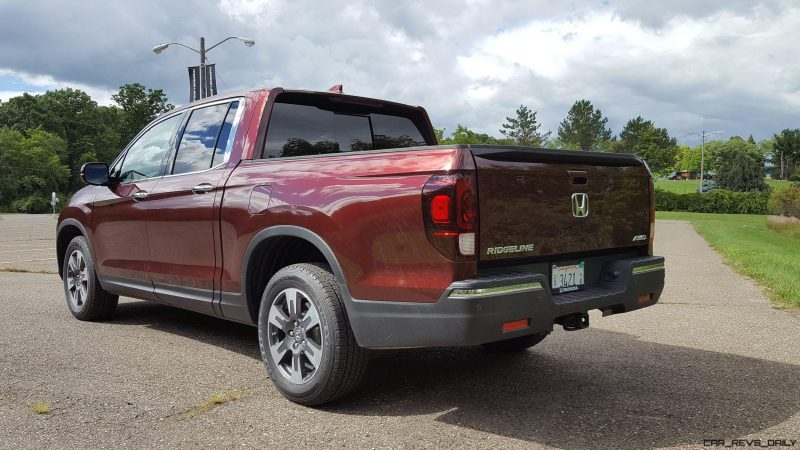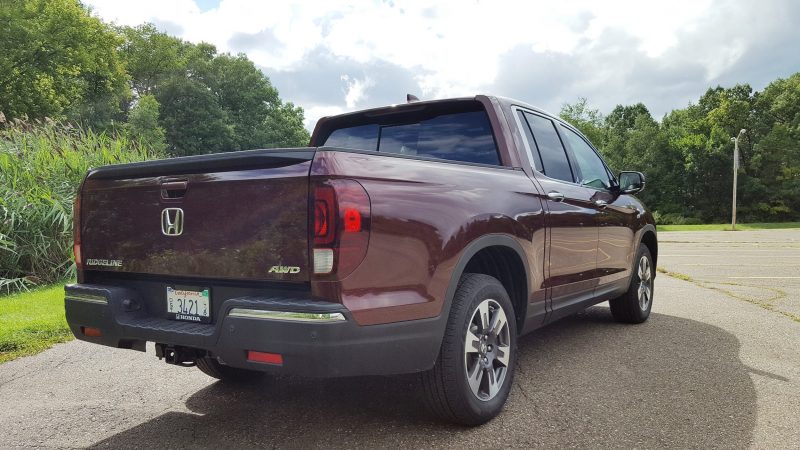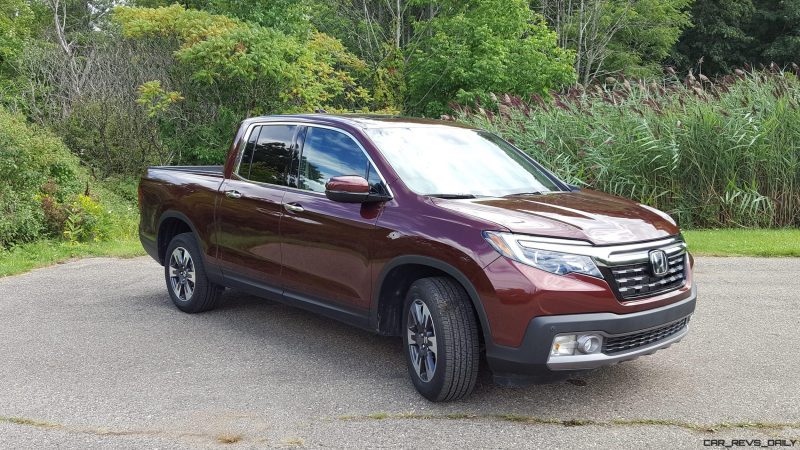Mid-size trucks are gaining sales a wild rate in 2016.
With the revitalization of the mid-size truck segment over the past two years, this is now a hotly-contested battlefield.
Once defined by wheezy entries such as the Ford Ranger, as well as older iterations of the Nissan Frontier and Toyota Tacoma, the second generation Chevrolet Colorado and GMC Canyon have set the current benchmark for the segment, and pushed their Asian rivals out of the mix in the process.
Honda looks to reverse this trend with the 2017 Honda Ridgeline, but can this revamped entry standout in a crowded segment while still retaining the traits that made its predecessor a sales success?
The exterior styling of our Forest Mist Metallic test truck ditches the old model’s puffed up proportions, and instead features a more subdued suit of clothes that includes a front fascia that is reminiscent of the Honda Pilot SUV which is fitting since it shares much of its architecture with that model. The side profile carries on with the subtle touches and leads out to the rear fascia. While a bit bland when compared to other entries, the taillights do stand out thanks to their slightly smoked appearance as well as their stylish illumination during night driving. The bed of the Ridgeline also retains much of the functionality that many buyers come to expect from a pickup while also offering unique features at the same time. The tailgate can be opened either traditionally or sideways, and a concealed trunk helps increase cargo space. Curiously, the lid for this space proved to be the one sore spot for the bed, with the keyhole for locking it being positioned in a way that made it difficult to access with the key when it was closed.
A highlight feature on our tester was its optional Truck Bed audio system that positions speakers in the bed of the truck. Controlled via a separate menu in the infotainment system, the speakers did a commendable job with sound quality and are designed to primarily appeal to those that take the Ridgeline to tailgates and other similar events. This feature also proved to be a very good conversation starter, and the Ridgeline is currently the only mid-size truck offering to come equipped with such a system.
The interior of the Ridgeline also carries over some of the themes that define the Pilot and offers buyers a surprisingly vast and comfortable space. The front seats offer commendable amounts of shoulder and head room with some of these figures either being on par or outright beating rivals. The lone exception is leg room which made the second row slightly cramped for taller occupants. Thankfully the front seats had decent room and the neutral driving position was a nice touch. The layout of the various controls and switches also takes pages from the Pilot playbook and favors ergonomics and functionality over frills. Many buttons and switches were easy to use and reach with some being big enough to be easily located. The Honda Link infotainment system in our tester also proved to be a highlight during our time with it.
Inputs were quick with virtually no lag, and the screen delivered crisp images every time. However, the screen is also a big magnet for smudges and fingerprints, so periodic cleanings with a rag and appropriate cleaning solution are recommended to keep it looking its best. The gauges are a pretty straightforward design, and did a good job displaying various pieces of information and other read outs.
Performance for our tester comes from Honda’s familiar 3.5 liter SOHC V6 engine. Good for a commendable 280 horsepower and 262 lb-ft of torque this engine did a good job delivering smooth and confident acceleration though the Ridgeline’s 4,515 lb curb weight may make it seem like its going slower than it really is. Despite this, the engine easily outguns the Colorado and the Tacoma, while also equaling or surpassing them in fuel economy at the same time.
A six speed automatic transmission is the sole choice here, and it is arguably one of Honda’s best thanks to its silky smooth shifts, as well as the tweaked gear ratios that allowed our tester to boast impressive snappiness in off the line acceleration as well as freeway lane changes. Our tester came equipped with all-wheel drive and while it will not quite surpass the rugged capability found on other offerings, the Ridgeline does allow drivers to select several driving modes via a button that is placed below the shifter. This system will please buyers in the snow-belt where winter conditions can make snow/ice mode a valuable partner to have. Braking was strong and smooth, but low speed stops did reveal instances where the body bobbed back and forth for a few seconds before regaining its composure.
Handling on the other hand proved to be the Ridgeline’s trademark talent with the truck delivering car-like levels of comfort and smoothness. Steering was quick and precise and it did an excellent job delivering impressive levels of response and control. As expected from a mid-size truck, the electronic steering has a bit too much boost, but it was not to the point where it blunted on-road feel.
This is in contrast to rivals that can’t quite match the Ridgeline in both ride quality and handling manners, especially the Colorado/Canyon twins which tend to feel more truck like when pushed out on the road. The Ridgeline’s 1,584 lb cargo capacity does trail its body-on frame rivals, but its ability to tow 5,000 lbs is a nice surprise which should please buyers looking to tow a trailer or haul a boat to their favorite vacation spot.
Pricing for the 2017 Honda Ridgeline starts at $29,475 for the front wheel drive RT model, with the Ridgeline being the only mid-size pickup truck in the segment to embrace front wheel drive versus the rear wheel drive layout seen in other pickup truck offerings. All-wheel drive adds $1,800 to the MSRP, and is also available across the Ridgeline model family (RTS, Sport, RTL, RTL-T, and Black Edition.)
Our loaded RTL-E AWD tester had a base price of $41,370 with the final price ringing in at $42,270 thanks to the $900 destination fee. This pricing ladder puts the base model above the $20,995 Colorado WT extended cab model with the V6 in higher trims offering more power than the Ridgeline. The Toyota Tacoma also has a cheaper cost of admission than the Honda, and even offers a four cylinder engine as an alternative engine choice. However, the Tacoma cannot match the Honda’s handling prowess, and its 3.5 liter V6 gives up two horsepower and one mpg on the freeway to the Ridgeline.
While it will be interesting to see if Honda’s offering can put a dent in the sales momentum achieved by the Chevrolet Colorado and the GMC Canyon, the Ridgeline does present itself as a compelling alternative to conventional pickup trucks, and it will be interesting to see whether traditional pickup truck buyers will be drawn in by the Ridgeline’s blend of comfort and features.
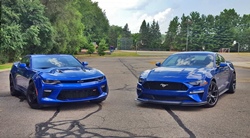
Carl Malek has been an automotive journalist for over 10 years. First starting out as a freelance photographer before making the transition to writing during college, his work has appeared on numerous automotive forums as well as websites such as Autoshopper.com.
Carl is also a big fan of British vehicles with the bulk of his devotion going to the Morgan Motor Company as well as offerings from Lotus, MG, and Caterham. When he is not writing about automobiles, Carl enjoys spending time with his family and friends in the Metro Detroit area, as well as spending time with his adorable pets.


